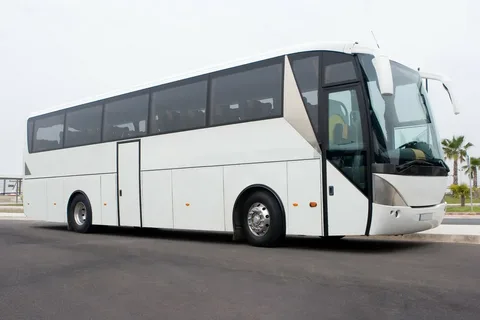What Are the Cancellation Policies for Charter Bus Rentals

Planning group transportation for an event, trip, or special occasion requires time, coordination, and attention to detail. But sometimes, unexpected situations arise plans change, events get postponed, or weather forces a cancellation.
Understanding how charter bus rental philadelphia cancellation policies work can help you avoid unnecessary stress and financial loss. While policies can vary from company to company, there are some common rules and best practices you should know before booking your next trip.
1. Every Company Has Its Own Policy
No two charter bus companies have identical cancellation policies. Some are flexible, while others are more strict, depending on the type of service, time of year, and how close you are to your travel date.
That’s why it’s crucial to read your rental agreement carefully before signing. The cancellation section will outline the company’s refund timeline, fees, and procedures.
If you’re booking with a reputable company like CharterBusBookings, you’ll receive clear terms upfront — ensuring there are no surprises later.
2. Common Cancellation Timeframes
Most charter bus companies operate under a tiered cancellation schedule, meaning the closer you get to your travel date, the less you’ll be refunded if you cancel.
Here’s an example of how it often works:
-
30 days or more before the trip: Full refund or small processing fee
-
15–29 days before the trip: Partial refund (typically 50–75%)
-
7–14 days before the trip: Limited refund (often 25–50%)
-
Less than 7 days before the trip: No refund
This schedule may vary depending on your provider, but it gives you a good idea of what to expect.
3. Non-Refundable Deposits
Many charter companies require a deposit to reserve your bus. This deposit (often between 10% and 30% of the total cost) is usually non-refundable, even if you cancel weeks in advance.
Why? Because that deposit secures your bus, driver, and scheduling preventing the company from booking that vehicle for other customers.
However, some providers may offer credit toward a future trip if you cancel early enough, so it’s always worth asking before finalizing your booking.
4. Weather and Emergency Cancellations
Life happens and sometimes it’s beyond anyone’s control. Weather-related cancellations, road closures, or emergencies can affect your trip.
In these cases, many companies try to be as accommodating as possible. Some may reschedule your trip at no extra charge or offer partial credit for future use.
However, “no questions asked” refunds for bad weather are rare unless the trip becomes impossible to complete (for example, due to government travel restrictions or unsafe conditions).
Always check the company’s force majeure clause this covers cancellations caused by uncontrollable events like natural disasters or public emergencies.
5. How to Cancel Properly
If you need to cancel your booking, make sure to do it in writing usually via email. This creates a record of your request and helps avoid disputes later. Include your:
-
Reservation number
-
Trip date and route
-
Name and contact details
-
Reason for cancellation
Then, confirm that your cancellation has been processed and ask when you can expect your refund (if applicable).
6. Travel Insurance Can Help
If you’re booking a large, expensive trip or coordinating for a big group, consider travel or event insurance. Some policies cover transportation cancellations, giving you an extra layer of protection if something unexpected forces you to call off your trip.
Final Thoughts
Understanding charter bus cancellation policies before you book can save you both money and frustration. While every company’s rules are slightly different, most follow a similar pattern early cancellations offer more flexibility, while last-minute ones may result in limited or no refunds.
- Art
- Causes
- Crafts
- Dance
- Drinks
- Film
- Fitness
- Food
- Jeux
- Gardening
- Health
- Domicile
- Literature
- Music
- Networking
- Autre
- Party
- Religion
- Shopping
- Sports
- Theater
- Wellness
